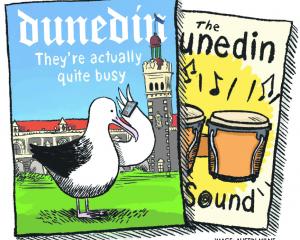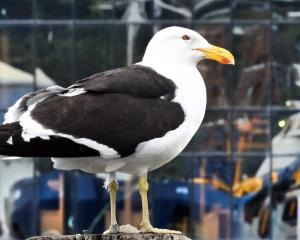
Councillors at this week’s public and active transport committee heard, for the financial year of 2022-23, patronage had grown 18% over the previous year.
Comparing the number of people on buses to the last year without any disruptions from Covid, patronage was up by 7%.
Missed trips, which have plagued the service, had reduced after an average of 59 missed trips a day over the first three months of the year.
Now, with more drivers employed, only 6.5% of trips were missed, and the cancellation rate had dropped to 32 missed trips a day over the past month.
Otago Regional Council interim chief executive Dr Pim Borren acknowledged the "remarkable success" of the council’s transport team in terms of recovery after a period of significant disruption.
"Last year we had the perfect storm in public transport.
"Everyone is aware of the issues we dealt with with driver shortages.
"We’ve put pressure on operators. We’ve managed to maintain our relationships with our two contractors.
"And we’ve also made some pretty tough decisions, some of them from the chief executive, around when we went back to full timetables — probably the first city in New Zealand to do that on February 1, probably the first city in New Zealand to get back to full bus driver recruitments in New Zealand, in this city."
Dr Borren went on to say he believed there were now fewer missed bus trips in Dunedin than any other city in New Zealand.
Further, Dr Borren said staff recognised there was an opportunity for a "step change".
"I’m excited by it actually, and we all should be."
He said the council needed to set "challenging" public transport goals — more people on buses and more people walking and cycling.
The regional council was determined to work in partnership with Queenstown Lakes District Council and the Dunedin City Council towards its goals.
"There are some unknowns at the moment, we don’t know what’s in the Budget next week — and we don’t know how much money is going to be prioritised for the ‘big five cities’ as opposed to the other parts of [New Zealand]."
Still, with a budget of about $35million for public and active transport, by the end of the third quarter of this financial year ending June 30 the council was less than $200,000 in deficit, even after significant increases in costs due to increases to driver wages, he said.
"I think that will get a little bit worse over the last quarter, because the advantage we’ve had is penalising operators for missing trips and now that the missed trips are disappearing costs have gone up and we no longer have that offset," Dr Borren said.
"This is the irony of actually getting our service back to normal.
"It’ll creep up a little, but this is because we did not budget for the significant increases in remuneration, which has happened through the year."
Cr Andrew Noone, who chaired the meeting, thanked Dr Borren on behalf of the committee.
Dr Borren’s effort on the issues around public transport was a credit to him and his team, Cr Noone said.
"You arrived here on June 7 when you had a few ‘hospital passes’ — and this was one of them," he said.
Council chairwoman Gretchen Robertson said it had been "trying and very challenging times".
Cr Robertson reiterated Cr Noone’s thanks for Dr Borren and the transport team.
"But also just wanted to thank our communities for bearing with us.
"It has been very trying, but for us nowhere near as much as a bus user that is relying on the bus every single day to get around and meet their needs," she said.












